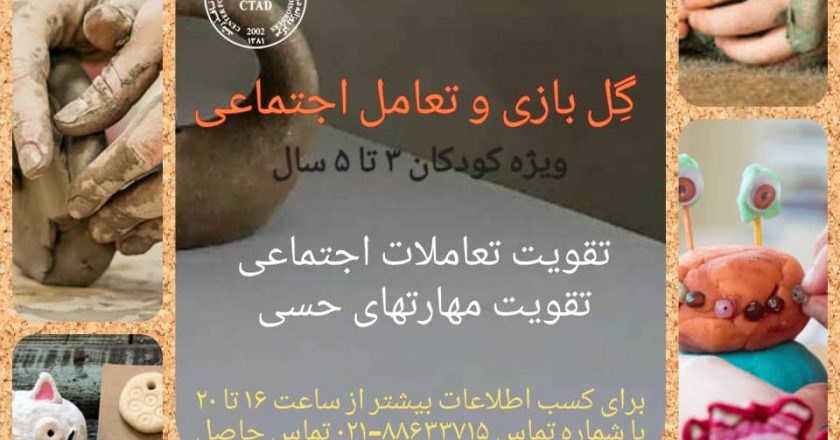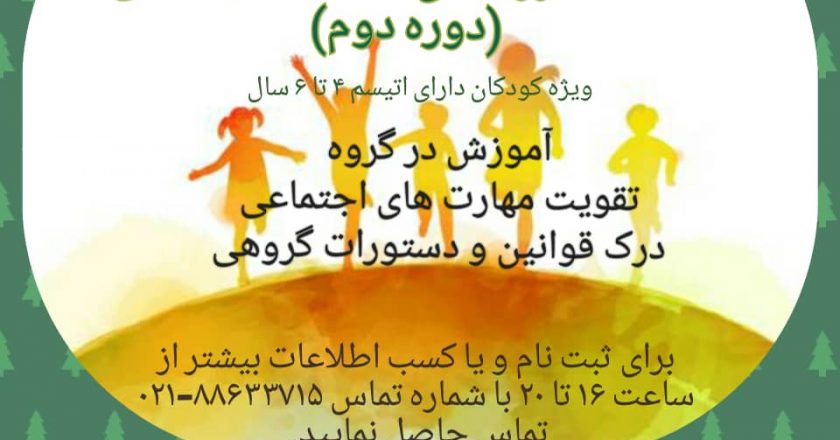گفتگوی مرکز تهران اتیسم با تینا تعیشی کارشناس کاردرمانی با موضوع مشکلات حسی در اتیسم در لایو اینستاگرام مرکز تهران اتیسم
زمان: پنج شنبه، ۲۶ فروردین ساعت ۲۱
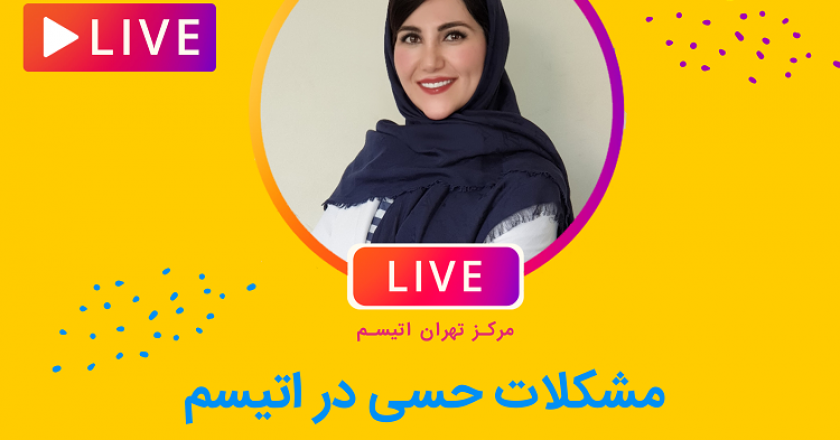
گفتگوی مرکز تهران اتیسم با تینا تعیشی کارشناس کاردرمانی با موضوع مشکلات حسی در اتیسم در لایو اینستاگرام مرکز تهران اتیسم
زمان: پنج شنبه، ۲۶ فروردین ساعت ۲۱
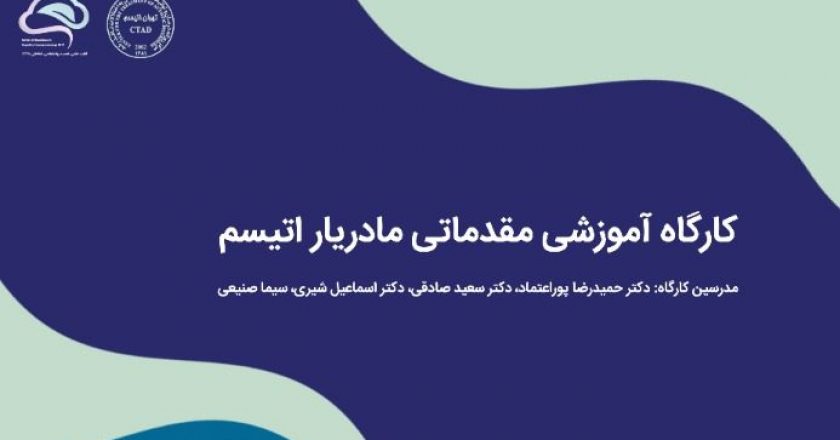
سومین دوره کارگاه آموزشی مقدماتی مادریار اتیسم با همکاری قطب عصب روانشناسی شناختی و مرکز تهران اتیسم در روز چهارشنبه ۱ اردیبهشتماه 1400 بصورت آنلاین برگزار خواهد شد. در پایان این کارگاه آموزشی مشخصات مادریاران (بهورزان) اتیسم در سامانه توانآموز ثبت خواهد شد و از این طریق به خانوادهها معرفی خواهند شد.
مدرسین کارگاه: دکتر حمیدرضا پوراعتماد، دکتر سعید صادقی، دکتر اسماعیل شیری، خانم سیما صنیعی
جزئیات دوره در پوستر قابل مشاهده است.
برای ثبت نام و کسب اطلاعات بیشتر با شماره تلفن مرکز تهران اتیسم ۸۸۶۳۳۷۱۵-۰۲۱ از ساعت ۱۶ الی ۲۰ تماس حاصل نمایید.
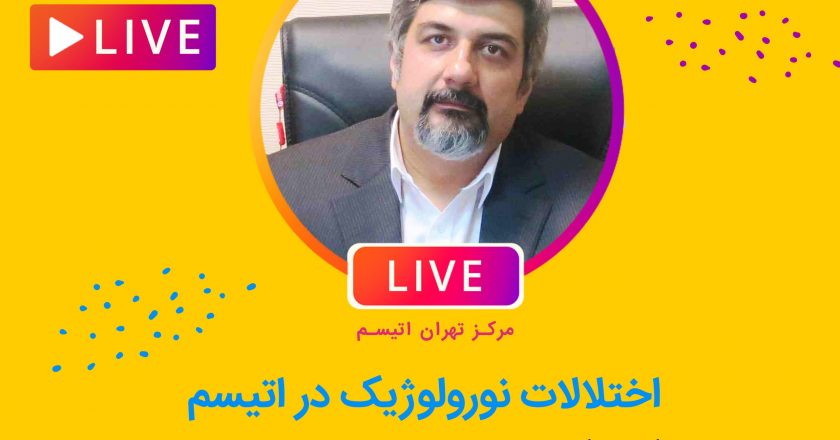
گفتگوی مرکز تهران اتیسم با جناب آقای رضا دکتر شروین بدو، فوق تخصص بیماریهای مغز و اعصاب کودکان و رئیس مرکز طبی کودکان در لایو اینستاگرام مرکز تهران اتیسم با موضوع اختلالات نورولوژیک در اتیسم
زمان: جمعه ۲۰ فروردین ساعت ۲۱
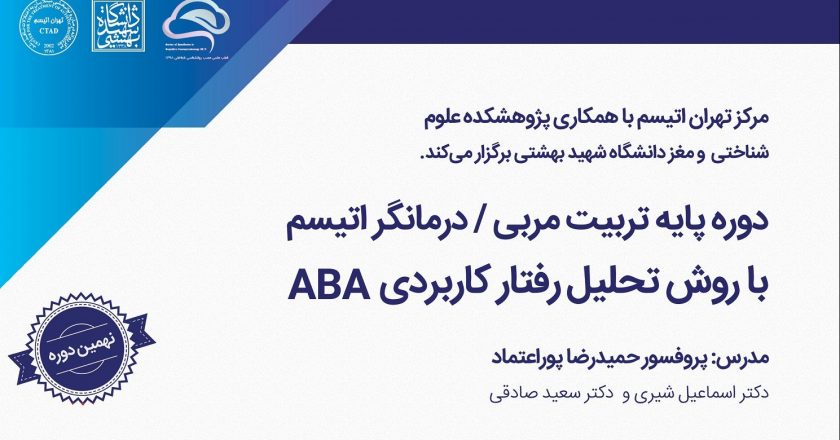
مرکز تهران اتیسم با همکاری پژوهشکده علوم شناختی و مغز دانشگاه شهید بهشتی و قطب عصب روانشناسی شناختی برگزار میکند.
دوره پایه تربیت مربی / درمانگر اتیسم با روش تحلیل رفتار کاربردی
مدرسین: پروفسور حمیدرضا پوراعتماد، دکتر اسماعیل شیری، دکتر سعید صادقی
شیوه برگزاری: این دوره بصورت آنلاین (غیر حضوری) برگزار خواهد شد.
طول دوره: ۱۶ ساعت (۲ روز)
این دوره در روزهای پنجشنبه 30 و جمعه ۳۱ اردیبهشت ماه ۱۴۰۰ برگزار خواهد شد. به شرکت کنندگانی که با موفقیت دوره را بگذرانند گواهی معتبر از طرف دانشگاه شهید بهشتی اعطا خواهد شد. همراه با فرصت شغلی برای شرکت کنندگان اهل تهران
شرایط شرکت کنندگان: دانشجویان و فارغ التحصیلان روانشناسی، مشاوره، کودکان استثنائی و علوم تربیتی
هزینه دوره: ۶۵۰ هزار تومان
شماره حساب پرداخت شهریه دوره: ۲۰۶۱۱۰۱۱۳۲۶۷۳۹۱ (بانک پاسارگاد، شعبه زرتشت، به نام انجمن علوم و فناوری شناختی) یا شماره کارت ۵۸۵۹۸۳۱۰۲۹۷۷۴۲۸۷ (بانک تجارت، مجید اسحقی گرجی، مسئول مالی انجمن علوم و فناوریهای شناختی)
برای کسب اطلاعات بیشتر و ثبت نام از ساعت ۱۶ الی ۲۰ با مرکز تهران اتیسم (۸۸۶۳۳۷۱۵-۰۲۱) تماس حاصل نمایید. همچنین میتوانید با آیدی ABAadmin@ در تلگرام در تماس باشید.
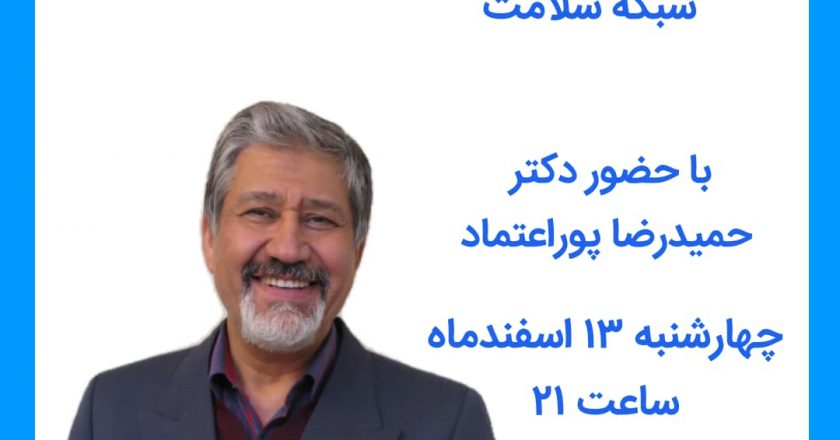
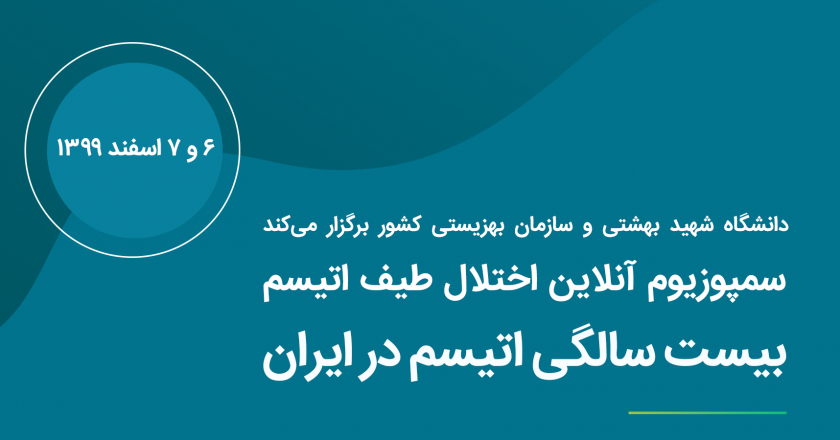
سمپوزیوم آنلاین اختلال طیف اتیسم: بیست سالگی اتیسم در ایران در روزهای ۶ و ۷ اسفند بصورت آنلاین برگزار میشود.
حضور در این سمپوزیوم و کارگاههای آموزشی آن برای همگان آزاد و رایگان است.
دریافت برنامه سمپوزیم بصورت فایل pdf

گفتگویی پیرامون اتیسم با حضور جناب آقای دکتر حمیدرضا پوراعتماد در برنامه پاسخگو رادیو سلامت در ساعت ۸:۱۵، دوشنبه بیست بهمن ۱۳۹۹، برگزار شد.
نسخه صوتی این گفتگو را میتوانید از طریق این لینک بشنوید.
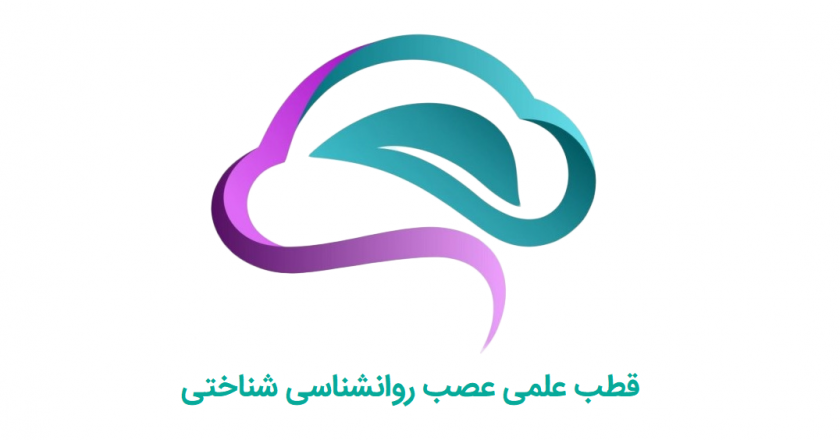
قطب عصب روانشناسی شناختی در پژوهشکده علوم شناختی و مغز دانشگاه شهید بهشتی در سال ۱۳۹۸ شکل گرفته است. پژوهشکده علوم شناختی و مغز دانشگاه شهید بهشتی ریشه در مطالعات گروه روانشناسی و آزمایشگاه تجربی دانشگاه دارد که در دهه ۴۰ شمسی تأسیس شد؛ اما تأسیس «مرکز مطالعات عصب رشدی تهران-آکسفورد» در سال ۲۰۰۳ نقطه عطف شکلگیری روانشناختی شناختی کاربردی در دانشگاه شهید بهشتی محسوب میشود. از آن پس تأسیس مرکز اتیسم بهآرا (سال ۱۳۸۴) و کلینیک توانبخشی شناختی (سال ۱۳۹۳) و تدوین و برگزاری کارشناسی رشته توانبخشی شناختی در وزارت علوم و رشته عصب توانبخشی در وزارت بهداشت باعث جهتگیری روانشناسی شناختی به سمت عصب روانشناسی بالینی شد. به شکلی که امروز این پژوهشکده رفرنس علمی، خدمات آموزشی و درمانی به کودکان دارای اختلالات عصبروانشناسی (اتیسم، ADHD و…) محسوب میشود.
برای کسب اطلاعات بیشتر در مورد فعالیتهای متنوع علمی، پژوهشی، آموزشی و حمایتی قطب عصب روانشناسی شناختی به وبسایت قطب عصب روانشناسی شناختی مراجعه بفرمایید.
لینک: http://cecn.sbu.ac.ir
